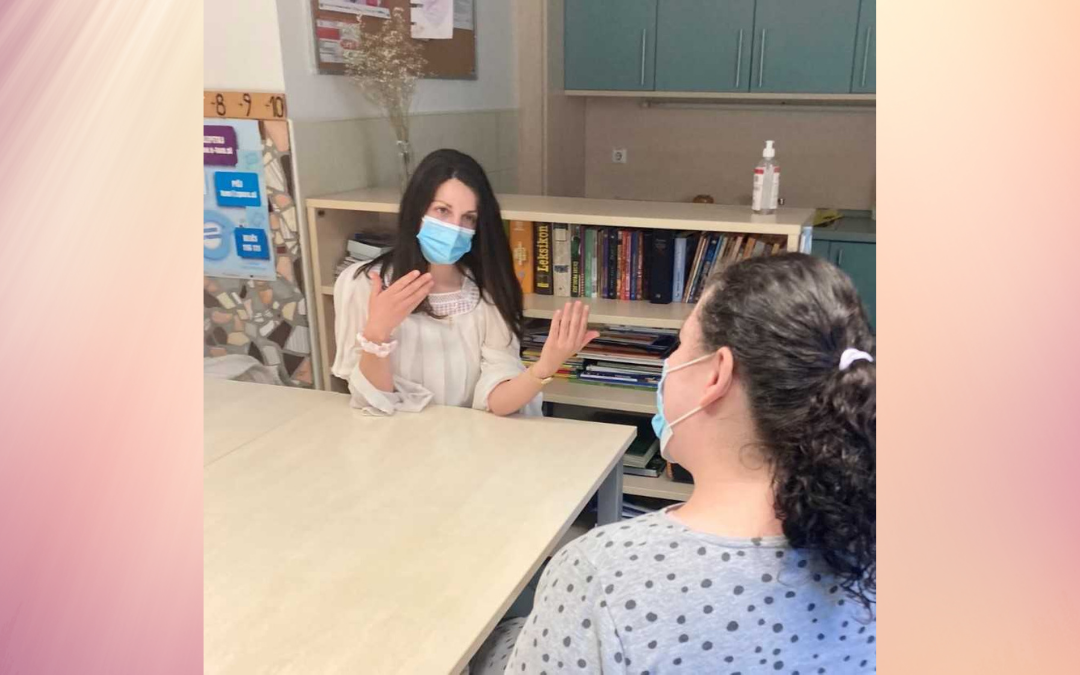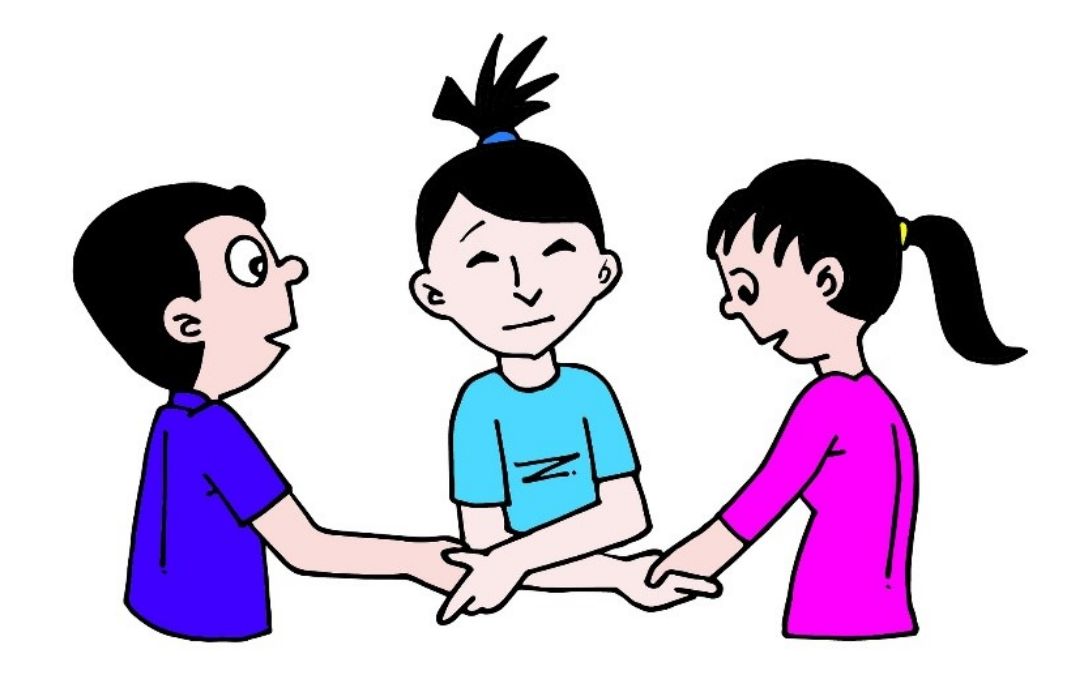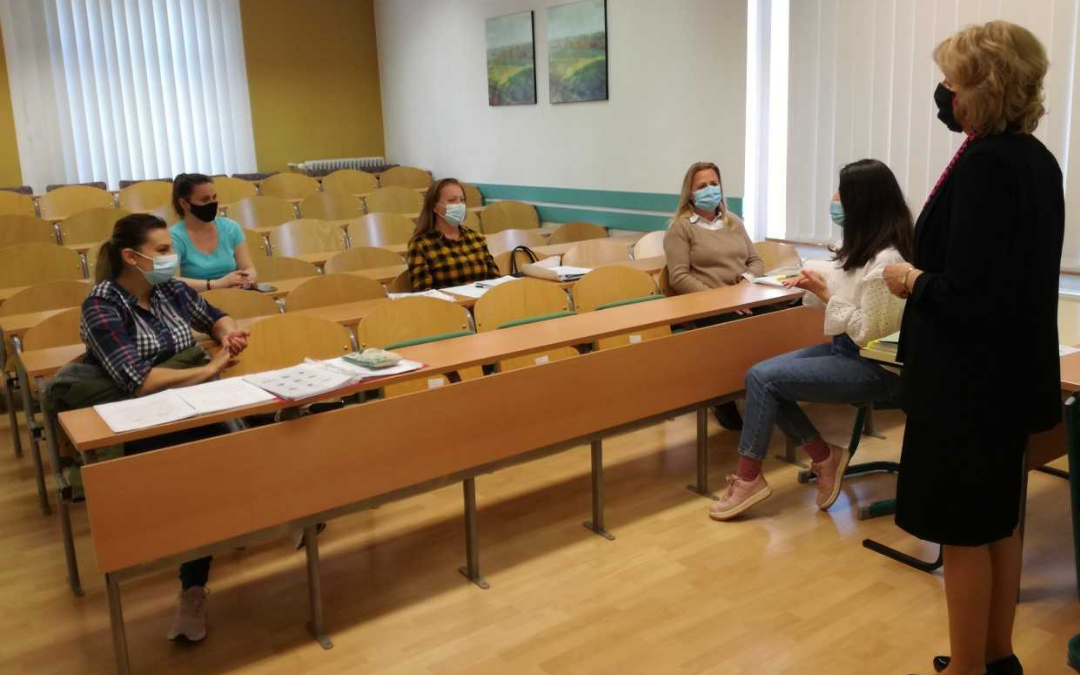An intercultural mediator is a person who acts as a connecting bridge between cultures. It is a relatively new profession in Slovenia, but it is becoming more and more established and will undoubtedly contribute to multicultural coexistence in the future.
With their knowledge and competencies, intercultural mediators establish and enable intercultural communication outside and within institutions in the field of immigrant integration. In addition, they strengthen intercultural dialogue between immigrants and other people in Slovenian society. The intercultural mediator understands the importance of integration as a two-way process and knows how to convey it to the target group and other residents of Slovenia in the process of performing the tasks of intercultural mediation. Through their work, they also contribute to the spread of social networks, and they understand the importance of intercultural dialogue in various fields: cultural, social, economic, etc., as well as migration processes and the importance of immigrant integration.
We organise various programmes for immigrants and Slovenian language courses, and in 2019, we also started implementing the project Social Activation of Gorenjska. The latter is intended to strengthen the social and work competencies of women coming from other cultural backgrounds. The project also employs an intercultural mediator, which significantly contributes to the quality of implementation. The intercultural mediator also offers various solutions for other areas where immigrants are included in Slovenian society in our environment. We hope that reading the article on the profession of an intercultural mediator will also raise ideas in your head.
It provides employees in various organisations and other people with knowledge about immigrant cultures and helps them develop an appropriate attitude towards immigrants’ cultural habits, customs, practices and beliefs.
The need for intercultural mediators is growing, as the work covers all areas of public life where it is crucial to overcome linguistic and cultural barriers and thus reduce inequality. They are most needed in health care, administrative units, education and social care.
In Slovenia, it is not possible to obtain a publicly valid education or a public certificate of competency to perform the profession of an intercultural mediator. We have only had the national professional qualification of intercultural mediator for one year. At Kranj AEC, we started the search for persons suitable to carry out intercultural mediation.
My work and the work of an intercultural mediator encompasses a wide range of activities that overcome the negative results of both linguistic and sociocultural differences. I am trying to create a situation where immigrants will have equal access and quality of services, treatments, etc., as locals. I often point out that an intercultural mediator builds a bridge between the two cultures. However, let me emphasise that it is not enough to speak the language of a particular cultural community; it is necessary to know and speak the ‘culture’ of the user.
The work of an intercultural mediator is much more than just translating
As an intercultural mediator – I am currently working on the project Social Activation of Gorenjska – I strive to improve communication and, thus, mutual understanding. My work is dedicated to empowering participants. I offer them a translation and explanation so that they understand all the contents of the programme. I help them so that they too are understood and can express themselves freely, without restrictions. I help them manage their personal situation, and I also accompany them to the doctor, where it is imperative so that mutual understanding is on an appropriate level and that there are no misunderstandings or even complications.
If you talk to a man in a language he understands, that goes to his head. If you talk to him in his own language, that goes to his heart.
I have gained a lot of experience over the years, both good and bad. Undoubtedly, I can say that the good ones prevail, whereas the bad experiences may have been mainly in the beginning, when we had to break the ice, due to the undefined role of the intercultural mediator. Thus, at a certain point, there was too much pressure from the users and institutions I worked with. This was due to the fact that all the responsibility that should have been assumed by both parties, perhaps even more so by the institutions, was transferred to me. But I also learned the most from this and actively strived for the recognition of this yet undefined profession.
Mira Grabanica (socialna.aktivacija@luniverza.si), Kranj AEC



